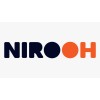Data Management for Personalized Advertising: Knowing the Tools and Techniques
The management of data for personalized advertising has become a more common practice in the current market. This is due to the fact that personalized advertising has demonstrated being one of the most effective strategies to attract and engage the target audience. However, for this strategy to be successful, it's necessary to have a good understanding of how to effectively manage data.
What is Data Management for Personalized Advertising?
The data management process for personalized advertising is one that involves the collection, storage, processing, and analysis of large volumes of data to create target audience profiles and personalize communication with them. This can include data on behaviors, interests, purchase history, among others. With these data, it's possible to create more effective advertising campaigns, increase conversions, and reduce advertising costs.
Why are good data important for personalized advertising?
It's important to have good data for personalized advertising because they allow you to better understand your customers and their behaviors, which helps create more effective campaigns and increase conversions. Additionally, good data help avoid judgment errors and reduce ad costs.
How can you have good data for personalized advertising? The answer lies in understanding the tools and techniques necessary to manage those data effectively. One of the most important tools for data management is CRM (Client Relationship Management). The CRM is a data management system that allows you to store and manage information about your customers, including behaviors, interests, and purchase history.
Data Management Tools
Beyond CRM, there are other important tools for data management, such as Google Analytics, Google Tag Manager, and Mixpanel. These tools allow users to monitor and analyze user behavior, as well as personalize the user experience based on collected data.
What are the main disadvantages of not having good data for personalized advertising?
The main disadvantages of not having good data for personalized advertising are the loss of conversions, the reduction in campaign effectiveness, and an increase in advertising costs. Additionally, the lack of good data can also lead to judgment errors and missed market opportunities.
Conclusion: managing data for personalized advertising is a fundamental strategy for success in digital marketing. To have good data, it's necessary to have knowledge of tools and techniques for collecting, storing, and analyzing the data. With this information, you can create more effective campaigns, increase conversion rates, and reduce ad costs.

